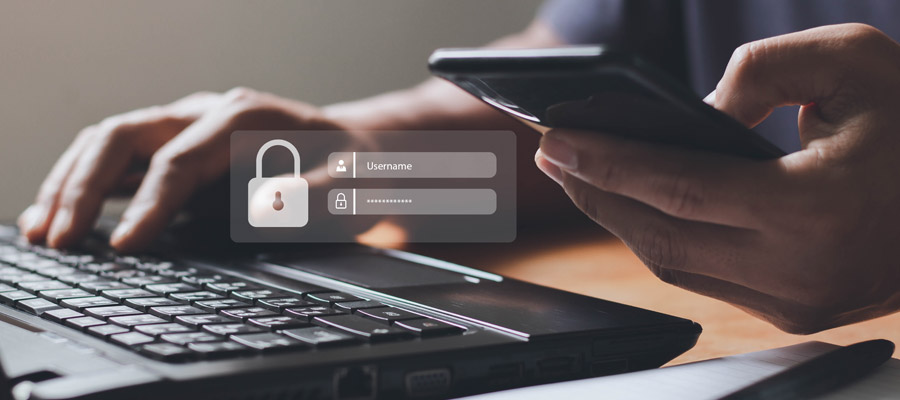
As cyber threats continue to evolve, businesses need to strengthen their defenses. A common way to do that is by enabling multi-factor authentication (MFA). In this blog, we’ll outline everything you need to know about multi-factor authentication and how it can help improve your cybersecurity.
What Is Authentication?
Authentication is a security measure that identifies a user, process, or device before it gains access to or interacts with a system. This crucial step is designed to ensure that only authorized users gain access to your system.
What Is Multi-Factor Authentication?
Multi-factor authentication is a verification process that requires multiple credentials to log in to a system or perform a secure transaction. While simple authentication methods require just one factor (or evidence of a user’s identity), typically a password, MFA requires the use of at least two of the following:
- Something only the user knows, such as the answer to a security question,
- Something the user has, like a token,
- Something unique to the user’s physical being — that is, a physical characteristic, such as their fingerprint or face.
As early adopters of multi-factor authentication, banks have long required users to insert a banking card (something the user has) and provide a pin (something only the user knows) before performing any transaction on an ATM.
For additional security, adding more factors than just a password will ensure greater control of your systems and data.
What Are the Benefits of Multi-Factor Authentication (MFA)?
There are several benefits of enabling multifactor authentication, including:
Offers Greater Access Control
Multi-factor authentication provides greater access control. Because access is granted based on multiple factors, if one factor is compromised (such as a stolen or guessed password), bad actors will still need another factor to gain access.
Reduces Risks From Compromised Passwords
While passwords are the most common type of authentication, they are also the least secure. Many people reuse and share passwords, which can lead to unauthorized access. However, with MFA even if someone has a password, a second or even a third factor is needed.
Ensures Compliance with Industry Regulations
Several industries, such as finance and health care, require organizations to protect sensitive information. While password protection is often used, MFA can ensure continued compliance with these regulations due to the increased risks of only using passwords, MFA can ensure continued compliance with these regulations.
Strengthens Security for Remote Workers
Protecting worker data and corporate assets becomes even more critical when workers log in and access company resources from anywhere. When employees are working outside the network, multi-factor authentication further protects your business’ systems through a strengthened authentication process.
Opens the Door for Cyber Insurance
To obtain access to cyber insurance, insurers want to see that you are actively managing the security of your technology assets, which includes the use of multi-factor authentication. Even if your insurer does not require MFA, insurance companies are increasingly adding this as a requirement to reduce losses from cyberattacks.
Multi-Factor Authentication – Part of Your Business Strategy
Adding MFA to your business strategy is an opportunity to reduce risk, ensure compliance with ever-increasing regulations, and train workers to adopt and maintain safer workflows and habits wherever they work.
Unsure about your cybersecurity strategy? Are your business policies and practices around authentication adequate? If you’re unsure about the vulnerabilities you may have, working with a managed services provider is a great option.
TPx’s comprehensive Security Advisory Services can help you identify vulnerabilities within your system and address them to mitigate your risk. Reach out to a TPx security expert today to talk about what you can do to strengthen your security and limit your risk.
